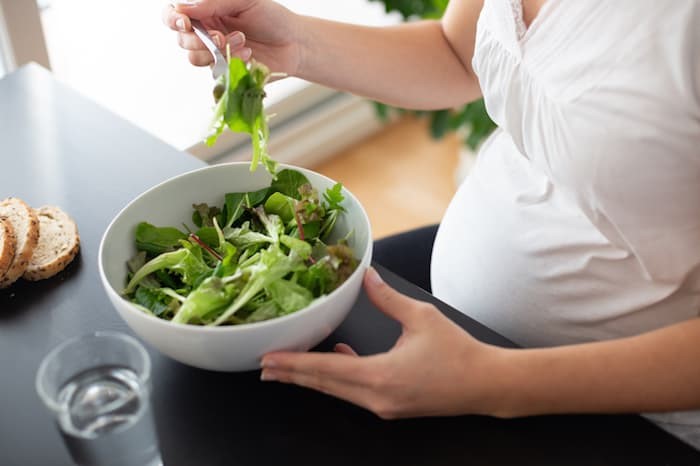All You Need to Know About Pregorexia: Symptoms, Causes & Treatment
Pregorexia is a term that combines the words pregnancy and anorexia to describe a woman who has an unnatural fear of gaining weight during pregnancy.” Despite the fact that pregorexia is not a medical illness, it is generally known that many pregnant women obsess about their weight and engage in excessive diet and exercise regimens.
Overview of Pregorexia
While there are no exact figures on how many pregnant women suffer from pregorexia, it is estimated that roughly 30% of pregnant women in the United States do not accumulate adequate weight gain during pregnancy. Eating disorders can be dangerous at any time, and an eating disorder during pregnancy puts the mother and the child in danger. A woman who is suffering from disordered eating when pregnant may feel humiliated or afraid of being judged. It’s critical to seek help from a trained practitioner who can compassionately address your concerns and challenges.

Symptoms of Pregorexia
The following are some of the more typical symptoms and warning indicators that you may be suffering from pregorexia while pregnant:
- Overworking oneself to the point of fatigue
- A reluctance to change your exercise routine
- Limiting your dietary intake
- Overeating & Calorie counting obsession
- Purging entails self-induced vomiting or the use of laxatives.
- A sense of shame and remorse about gaining weight
- Dining alone
- Weighing oneself on a daily basis
- Gaining very little weight
- Exhibiting self-consciousness about one’s physical weight, shape, or size
- Chronic exhaustion
- Drowsiness and blackouts
Causes of Pregorexia
Here are a few factors that can have an impact. If someone has previously struggled with an eating disorder, they are more likely to battle with one during pregnancy.
Pressure from society: People in Western society are under a lot of pressure to be skinny. People are bombarded with images and messages about how their bodies should look. This is also true for pregnant women. There is a lot of discussion regarding how much weight a celebrity gained during their pregnancy and how to stay fit while being pregnant. This can put a lot of pressure on you to keep as slim as possible.
Mental Illnesses That Haven’t Been Resolved: People with eating disorders are frequently diagnosed with another mental illness, such as anxiety or depression. Pregnancy can be a thrilling experience, but it can also be stressful and overwhelming. An eating problem could be a person’s reaction to their specific pressures.
Genetics: There is a hereditary component to eating disorders. While there is no unique gene for eating disorders, persons who have a family member who has one are more likely to develop one as well.
Committed to helping
people who want to help themselves
Health Risks of Pregorexia
The following are some of the potential health hazards of disordered eating during pregnancy:
- Bone loss in a pregnant woman
- Restrictions on the baby’s growth
- Obstacles to fetal development
- Low birth weight due to nutrient deficiency
- Excessive fatigue beyond what is expected during pregnancy
- Electrolyte imbalances
- Dizziness & Dehydration
- There’s a higher chance of prolonged labor.
- There’s a higher chance of miscarriage.
Complications of Pregorexia
Complications of pregorexia commonly involve growth restrictions for the baby. Fetal developmental problems. Low birth weight due to lack of nutrients. Fatigue beyond what is normal in pregnancy.
Prevention of Pregorexia
The most crucial piece of advice is to deal with any previous or current eating disorders before getting pregnant. Women strive to address pre-existing medical illnesses like diabetes and hypertension before getting pregnant, and eating disorders are no different. During pregnancy, women with eating disorders should continue to get any therapy or counseling they are receiving for the disease.
Normal weight gain during pregnancy is healthy and necessary for both the mother and the baby, and it is important to be aware of this fact. It can reduce the chances of having a cesarean section, as well as the chances of having a premature delivery. It’s also required for postpartum nursing.
Committed to helping
people who want to help themselves
Diagnosis of Pregorexia
Pregorexia has no formal diagnosis; nonetheless, if the majority of the symptoms are present in the pregnant woman, the illness is diagnosed:
- Fats, lipids, and carbs should be consumed in smaller amounts or not at all.
- Amount of weight gain is negligible or very low (not even the healthy or expected weight gain in a pregnant woman).
- Vitamin and mineral deficiency as a result of restricted nutrition
- Constant calorie counting and weight gain monitoring
- Obsessed with her appearance and the expansion of her stomach.
- Exercising vigorously in order to shed the pounds gained throughout her pregnancy.
- Wearing garments that fit snugly around the waist to prevent the belly from expanding.
- Denial that there is a real problem or that she needs help.
- Lack of energy because of an unbalanced diet.
Treatment of Pregorexia
The following are common treatments:
Medical monitoring and care: The medical parts of the eating problem and recovery process are overseen by a doctor. An OBGYN may be consulted by a pregnant woman to monitor the health of the baby.
Therapy: Individual, group or family therapy may be used to treat an eating disorder. Individual therapy can aid in the development of unique coping strategies, the exploration of unresolved emotions, and the treatment of untreated mental health conditions. People in recovery may benefit from group therapy since it allows them to talk with others who are in similar situations. Family or couple counseling can also be effective in helping loved ones understand how to support an individual.
Nutritional guidance: Nutritional advice is provided by a licensed dietitian (RD). An RD can assist someone in developing healthier eating habits and working through any concerns about eating during pregnancy.
